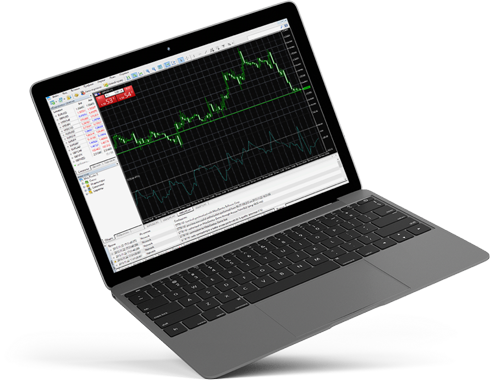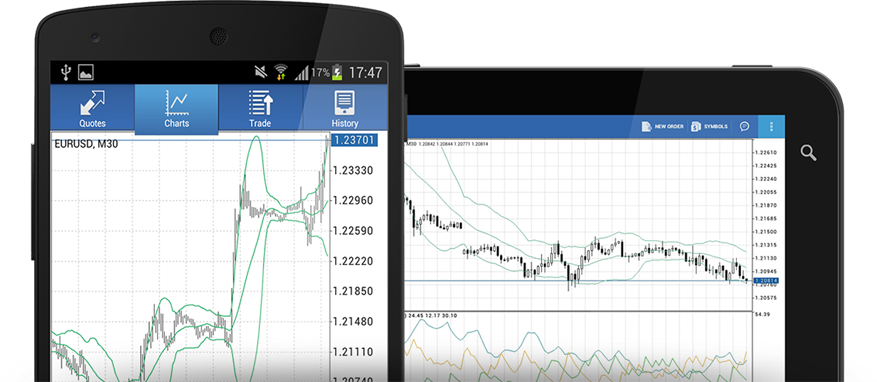If you are new to trading the fnancial markets your frst thought will be «Where do I start?», many new traders may be overwhelmed when they open their demo trading account for the frst tme and might try to run before they can walk.
Understanding the basics of trading is an essental startng point and in this the two-part artcle we will cover the key characteristcs of trading, the various fnancial instruments we can trade, the concept of going long and going short, trading platorms, startng capital and what it takes to succeed.

 Investing as a «Investor»
Investing as a «Investor»
 Investing as a «Trader»
Investing as a «Trader»

Investors take physical ownership of the instruments they have purchased. So for example, if an investor buys shares in a company they will physically own a portion of that company and will receive a certificate of ownership. A shareholder can carry certain privileges such as voting rights on certain corporate actions, as well as benefit from dividend payments on the profits.
While investors are often satisfied with annual returns of up to 15% depending on the risk element of the investment, some traders seek to make returns that are a multiple of this, as they can benefit from the dips in the market as well as the increases because of the ability to short sell. The length of time a trader has a position open for can range from seconds to years. This timeframe is entirely up to them and relates to their objectives, account size, risk profile and time they can commit to trading. Trading requires a more hands on approach than investing and regular assessment of market conditions is essential when traders have open positions.

A trader, in the narrow sense of the word, is a trader who trades on an exchange. Moreover, he can trade also as a businessman, with his own money or with money that investors have entrusted to him. Or he can work as a hired trader for a salary, for example, in a bank. In this case, his employer trusts his money and all the profit goes to the employer, and the salary is paid to the trader.
A financial instrument is a tradable asset of any kind i.e. it is an asset we can buy or sell at a monetary value on a financial market. Examples of financial instruments include currency pairs (i.e. the foreign exchange/FX market), commodities, stock indices and the stock of companies (also known as individual equities). As we do not take ownership of these assets when we are trading we are actually speculating on the price of futures contracts for FX instruments.
The price of these contracts is directly related to the price of the underlying instrument. So any movement in price of the physical asset will see a similar move in the price of the contract.




ABCFX offers an exceptionally wide variety of major, minor and exotic currency pairs. Invest on the global forex markets, benefiting from narrow spreads and versatile leverage reaching 200:1.

Add variety to your trading portfolio with our diverse suite of trading tools.

Like Forex, cryptocurrencies trade against other currencies in a pair, such as Bitcoin against USD, or against EUR. abcfx.uk offers cryptocurrencies including Bitcoin, Ethereum, Litecoin, Dash.
The term "market" is sometimes used for what are more strictly exchanges, organizations that facilitate the trade in financial securities, e.g., a stock exchange or commodity exchange. This may be a physical location (like the NYSE, BSE, LSE, JSE) or an electronic system (like NASDAQ). Much trading of stocks takes place on an exchange; still, corporate actions (merger, spinoff) are outside an exchange, while any two companies or people, for whatever reason, may agree to sell stock from the one to the other without using an exchange.
Trading of currencies and bonds is largely on a bilateral basis, although some bonds trade on a stock exchange, and people are building electronic systems for these as well, similar to stock exchanges. Financial markets attract funds from investors and channel them to corporations—they thus allow corporations to finance their operations and achieve growth. Money markets allow firms to borrow funds on a short term basis, while capital markets allow corporations to gain long-term funding to support expansion (known as maturity transformation).
The following table illustrates where financial markets fit in the relationship between lenders and borrowers:
| Relationship between lenders and borrowers | |||
| Lenders | Financial Intermediaries | Financial Markets | Borrowers |
| - Individuals | - FBanks | - Interbank | - Individuals |
| - Individuals | - Insurance Companies | - Stock Exchange | - Stock Exchange |
| - Pension Funds | - Money Market | - Central Government | |
| - Mutual Funds | - Bond Market | - Municipalities | |
| - Foreign Exchange | - Public Corporations | ||